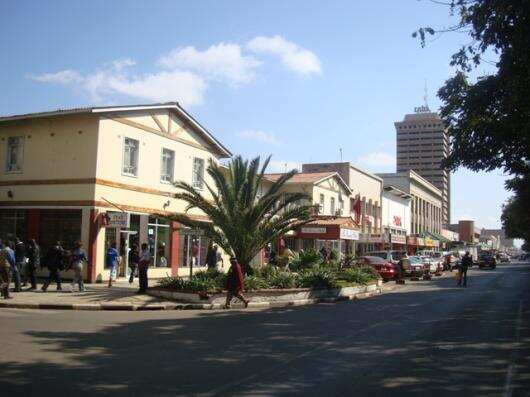Lusaka, Zambia
Know Your City - A 2030 City without Slums

Background Information
The project was established under the Memorandum of Understanding signed by Slum Dwellers International (SDI) and the United Cities and Local Governments of Africa (UCLGA). This agreement aimed to pilot local government-community cooperation around the common vision of cities without slums. The parties committed themselves to mobilizing their members (mayors of African cities for UCLGA and organized urban poor communities for SDI) to cooperate and carry out joint information gathering through enumerations and mapping.
Goals of the Initiative
The project aimed to address the urgent need to recognize that informal settlements are part of a city and that poor urban communities have fundamental rights to be included in the planning and provision of public services. A better knowledge of cities helps local authorities plan and strategize for development and the improvement of informal settlements. Knowledge starts with numbers, thus the Know Your City campaign was designed to be the first step to improving the service delivery of local governments in Africa.
The outcomes of the project were:
•Availability of data and information for planning
•Enhanced capacity for slum upgrading for local authorities and communities
•Networking and knowledge management and sharing on slum upgrading
•Established social investment fund for urban poor communities.
Innovation for the Initiative
The initiative can be considered revolutionary with regards to the role played by the local communities and to their pioneering partnership created with the local government. The involvement of communities in mapping and enumeration activities has occurred in many contexts, however, in this project, slum dwellers have been the owners of their own information. This approach, on one hand, motivated them to gather more accurate information and, on the other hand, enabled them to become active partners in planning their development, whereas the usual top-down approach in development has seen local government engaging “experts” for the collecting and analyzing of data about poor people. The profiling process created a layer of information on the locality of poorly served communities. The profiling has been therefore intended to generate a city planning and service delivery strategy that addresses poverty more effectively than the conventional administrative format.
Outcomes and Assessments
The project has brought about significant changes in:
•Inclusion of informal settlements in the city’s planning agenda (local/national)
•Creation of a bond of trust between government and communities (local/national)
•The real lives and living condition of slum residents have been made visible (local/national)
•Creation of city planning and service delivery strategy that addresses poverty more effectively than the conventional administrative format (local/national)
•Provision of accurate baseline information about the history, social and physical conditions in informal settlements. Such information represents an asset for the urban poor in their negotiations around access to land, access to services and demands for inclusive planning and housing (local/national).


 In Focus | World Cities Day: People-Centred Smart Cities
In Focus | World Cities Day: People-Centred Smart Cities City Stories | Fostering community resilience: A lifeline for the Central African Republic
City Stories | Fostering community resilience: A lifeline for the Central African Republic In Focus | Innovative Education, Empowering Futures
In Focus | Innovative Education, Empowering Futures




















 Tel: +86 020 3780 4434
Tel: +86 020 3780 4434 Email: info@guangzhouaward.org
Email: info@guangzhouaward.org Adress: Unit 01-7, 28th Floor, No. 7, Chunrong 3rd Road, Tianhe District, Guangzhou, Guangdong, 510000, PRC
Adress: Unit 01-7, 28th Floor, No. 7, Chunrong 3rd Road, Tianhe District, Guangzhou, Guangdong, 510000, PRC




